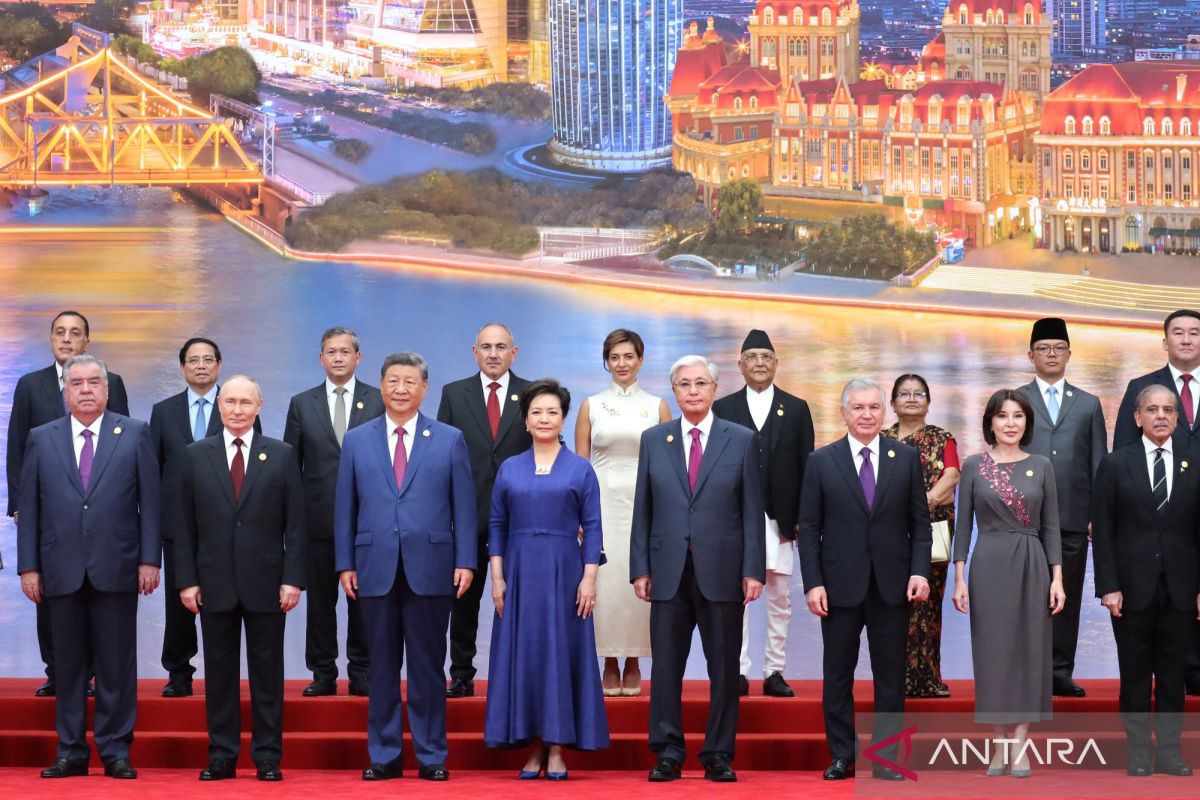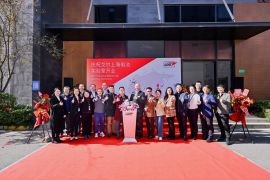Invited as Guest of the Chair, Indonesia was represented by Foreign Minister Sugiono on behalf of President Prabowo Subianto.
This presence underscores Indonesia’s growing role as a leading voice of the Global South and its commitment to shaping a fairer, more inclusive, and more representative global order.
This year’s SCO meeting marks the organization’s 25th anniversary and, for the first time, introduces the “SCO Plus” format.
By inviting countries beyond its traditional geography—including several ASEAN members—the SCO is evolving into a broader hub for multi-connectivity, linking Asia, Eurasia, and even global governance bodies.
For Indonesia, participating in this landmark moment means more than simply being present at the table. It reflects Jakarta’s intent to play an active role in shaping regional cooperation frameworks that are inclusive and open.
The SCO Plus format also creates space for dialogue among Global South nations, reviving the Bandung Spirit in a new era of global transformation—where Indonesia seeks not only to promote its own interests but also to foster dialogue, cooperation, and peace across regions.
Although Indonesia is neither a member nor an observer of the SCO, its inclusion in the SCO Plus format in Tianjin reflects growing recognition of the country as a bridge-builder capable of connecting diverse regions and perspectives.
The SCO—comprising China, Russia, India, Iran, Central Asian states, and dialogue partners across continents—represents nearly half the world’s population and around 30 percent of global GDP in purchasing power terms.
Previously associated primarily with security cooperation—such as combating terrorism, extremism, and separatism—the SCO has now developed a new “brand” as a more concrete and pragmatic platform focused on connectivity, trade, green development, and energy cooperation.
The SCO Plus initiative further expands this circle by engaging countries from ASEAN and beyond.
Indonesia’s presence in Tianjin is also strategic. It reflects continuity in Indonesia’s “Independent and Active” foreign policy and demonstrates Jakarta’s deliberate effort to shape—rather than merely adapt to—the evolving global governance landscape.
Indonesia’s decision to join BRICS earlier this year was part of this broader vision.
Through BRICS, Indonesia strengthens its engagement with like-minded countries to push for reforms in the global order, which is often perceived as unfair to developing nations.
Participation in the SCO Plus meeting connects Indonesia with Eurasia’s evolving multilateral frameworks.
Together, these tracks reinforce Indonesia’s message: developing nations are no longer passive recipients, but active contributors to the architecture of the international order.
This positioning is especially relevant as the current international system faces mounting strain. The World Trade Organization is gridlocked.
Tariffs and sanctions are increasingly used as instruments of statecraft. Supply chains remain vulnerable to political shocks.
Forums such as the SCO offer pragmatic avenues for cooperation in areas like local-currency trade, food security, renewable energy, and digital integration.
These efforts are vital to Indonesia’s strategy for building resilience amid external volatility. Historically, Indonesia’s engagement with the SCO also carries symbolic weight.
Seventy years ago in Bandung, Indonesia convened newly independent nations to champion justice and inclusivity beyond Cold War rivalries.
Today, that Bandung Spirit resonates with the SCO’s Shanghai Spirit—anchored in mutual trust, mutual benefit, equality, and respect for diversity.
Both principles emphasize inclusivity as the foundation for peace and development, offering a compass for the Global South in navigating today’s uncertainties.
The goal is not to replace established institutions, but to diversify global governance and ensure international cooperation is nurtured in an environment where international law is upheld and respected.
Indonesia’s presence in Tianjin signals more than symbolic participation.
By bringing the Bandung Spirit into dialogue with the Shanghai Spirit, Jakarta affirms its role not only as a bridge-builder but also as a norm-shaper.
For the Global South, Indonesia’s involvement adds both credibility and weight—credibility through its consistent “Independent and Active” foreign policy, and weight through its convening power.
At a time when trust in global institutions is eroding, Indonesia’s participation demonstrates that inclusive cooperation is both necessary and possible.
The SCO’s 25th anniversary provided an ideal stage for this message.
For Eurasia, it marks consolidation as a pillar of connectivity and resilience.
For ASEAN, it opens new opportunities to strengthen engagement with a key neighboring region.
For Indonesia, it reaffirms that the Bandung Spirit remains alive and relevant—guiding nations toward solidarity, fairness, and shared prosperity.
Indonesia’s message in Tianjin was clear: it does not stand as an outsider seeking entry, but as a partner offering ideas, principles, and connectivity.
In a divided world, Indonesia’s stance is straightforward: sustainable development requires peace, peace requires solidarity, and solidarity requires fairness.
This is the essence of Bandung seven decades ago—and it remains Indonesia’s contribution today, through ASEAN, through BRICS, through the G20, through the SCO Plus, and through every platform where the Global South can make its voice heard.
*) Pandu Utama Manggala is an Indonesian diplomat who works at Indonesian Ministry of Foreign Affairs
*) The views and opinions expressed on this page are those of the author and do not necessarily reflect the official policy or position of the ANTARA News Agency
Copyright © ANTARA 2025












